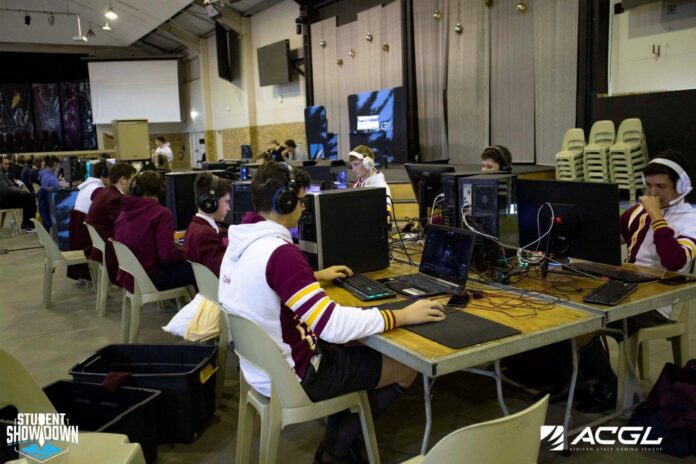By Adam Thomas-James (Esports Educational Specialist at ACGL – African Cyber Gaming League)
Esports, once dismissed as a frivolous pastime, has evolved into a dynamic intersection of entertainment, technology, and education. This transformation is not only reshaping perceptions but also providing significant benefits across educational levels. From primary schools to universities, esports offer a unique blend of engagement and learning, preparing learners to be future ready in the 4IR. Esports Educational Specialist, Adam Thomas-James, explores how esports complement education, fostering skills and social connections that are often overlooked in traditional learning environments.
A Gateway to Technology and Coding
For many underprivileged schools, esports serves as an engaging introduction to internet technology and coding. By integrating gaming into the curriculum, schools can captivate students’ interests and channel them into productive avenues. This approach is particularly effective in primary schools, where students are naturally curious and quick to adapt to new technologies. Engaging with esports at a young age not only demystifies technology but also encourages early development of digital literacy skills.
Key Benefits:
- Introduction to Coding: Games often involve programming elements, providing a fun entry point to learning coding.
- Digital Literacy: Students gain familiarity with technology, which is crucial for future academic and career opportunities.
Teamwork and Cognitive Skills
Esports provides an alternative to traditional sports, promoting teamwork, decision-making, problem-solving, sportsmanship, responsibility, and fast reaction times. These skills are vital in both personal and professional settings, making esports a valuable addition to the educational landscape.
Enhancing Cognitive Abilities:
- Problem-Solving: Games frequently present complex challenges that require strategic thinking and quick decision-making.
- Hand-Eye Coordination: Fast-paced gaming improves reaction times and motor skills, translating to better performance in various physical activities.
Social Integration and Leadership
One of the most profound impacts of esports in education is its ability to foster social integration. Gaming bridges gaps across different grades and social backgrounds, creating a common ground for students to connect. Teachers have observed that students who are typically quiet and reserved in the classroom often come alive in an esports environment. These students not only participate actively but also take on leadership roles, showcasing talents and confidence that might otherwise remain hidden.
Social Benefits:
- Friendship Formation: Shared passion for gaming encourages friendships across diverse student groups.
- Leadership Opportunities: Esports provides a platform for students to lead and organise, fostering leadership skills.
An Outlet for Learning Disabilities
Esports can be a powerful tool for students with learning disabilities. Anecdotal evidence suggests that these students can gain new skills and confidence through gaming. The interactive and visual nature of games often aligns well with their learning styles, providing an engaging way to develop various competencies.
Benefits for Learning Disabilities:
- Skill Development: Games can help improve focus, memory, and cognitive skills in a fun, engaging way.
- Confidence Building: Success in gaming can boost self-esteem and encourage further academic participation.
Competitive Growth and Specialisation
As students progress to high school and university, the competitive nature of esports intensifies. High school students begin to compete more seriously, and at the tertiary level, they often specialise in specific gaming titles. This competitive environment not only enhances their gaming skills but also teaches valuable lessons about dedication, perseverance, and goal setting.
Competitive Advantages:
- Skill Specialisation: Students develop expertise in specific games, which can lead to opportunities in professional gaming and related fields.
- Perseverance and Goal Setting: The competitive nature of esports teaches students to set goals, work hard, and handle both success and failure.
Overcoming Obstacles
Despite its many benefits, integrating esports into education is not without challenges. Access to stable internet and uninterrupted power can be significant obstacles, particularly in underprivileged areas. However, innovative solutions such as utilising malls as venues can provide the necessary infrastructure, making esports more accessible to students from informal settlements.
In terms of infrastructure utilisation, malls can offer stable internet and power, creating suitable venues for esports activities. From a spectator perspective, tournaments such as the HYPROP MTN SHIFT Gaming Experience, also offer an opportunity for local businesses and communities to support esports programs, providing resources and facilities.
Esports and education are not mutually exclusive; rather, they complement each other in ways that traditional educational methods may not. By incorporating esports into the educational framework, schools can engage students in meaningful, skill-building activities that foster both personal and academic growth. As we continue to destigmatise gaming, it is essential to recognise and promote the myriad benefits it offers, creating an inclusive, dynamic, and forward-thinking educational environment.
For more information about the MTN SHIFT Gaming Experience, brought to you by MTN and Hyprop, go to your closest mall’s website. All tournaments operated by ACGL.




























